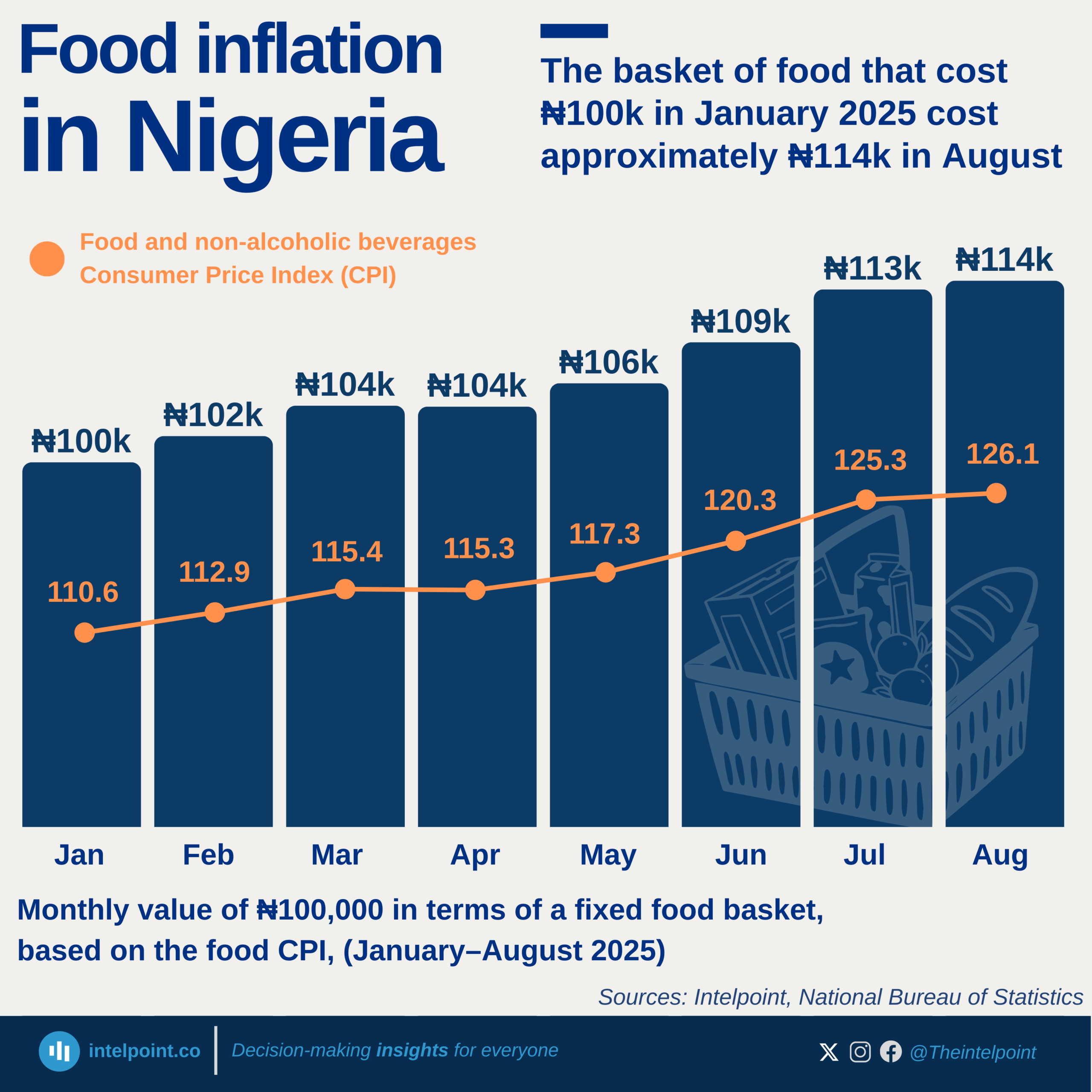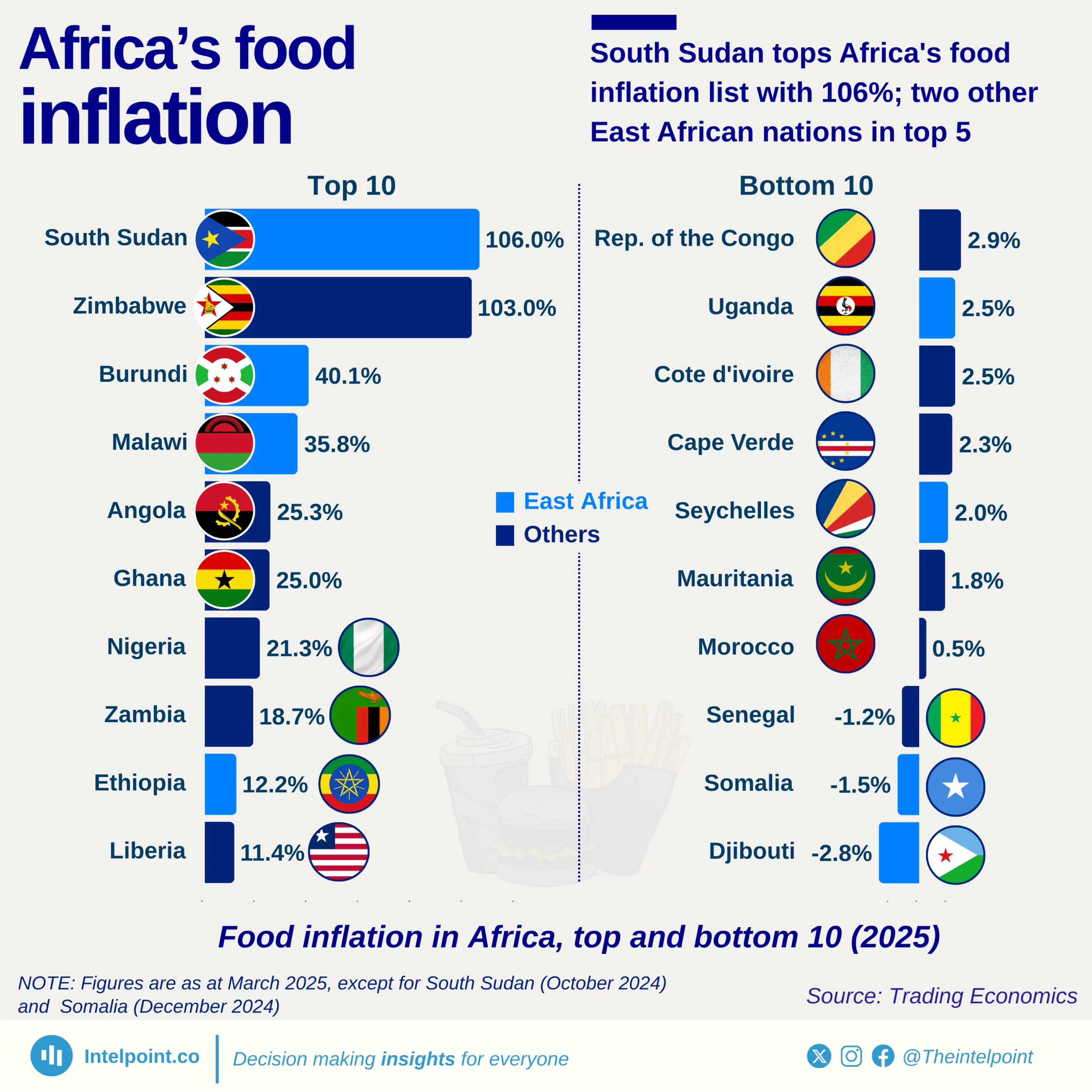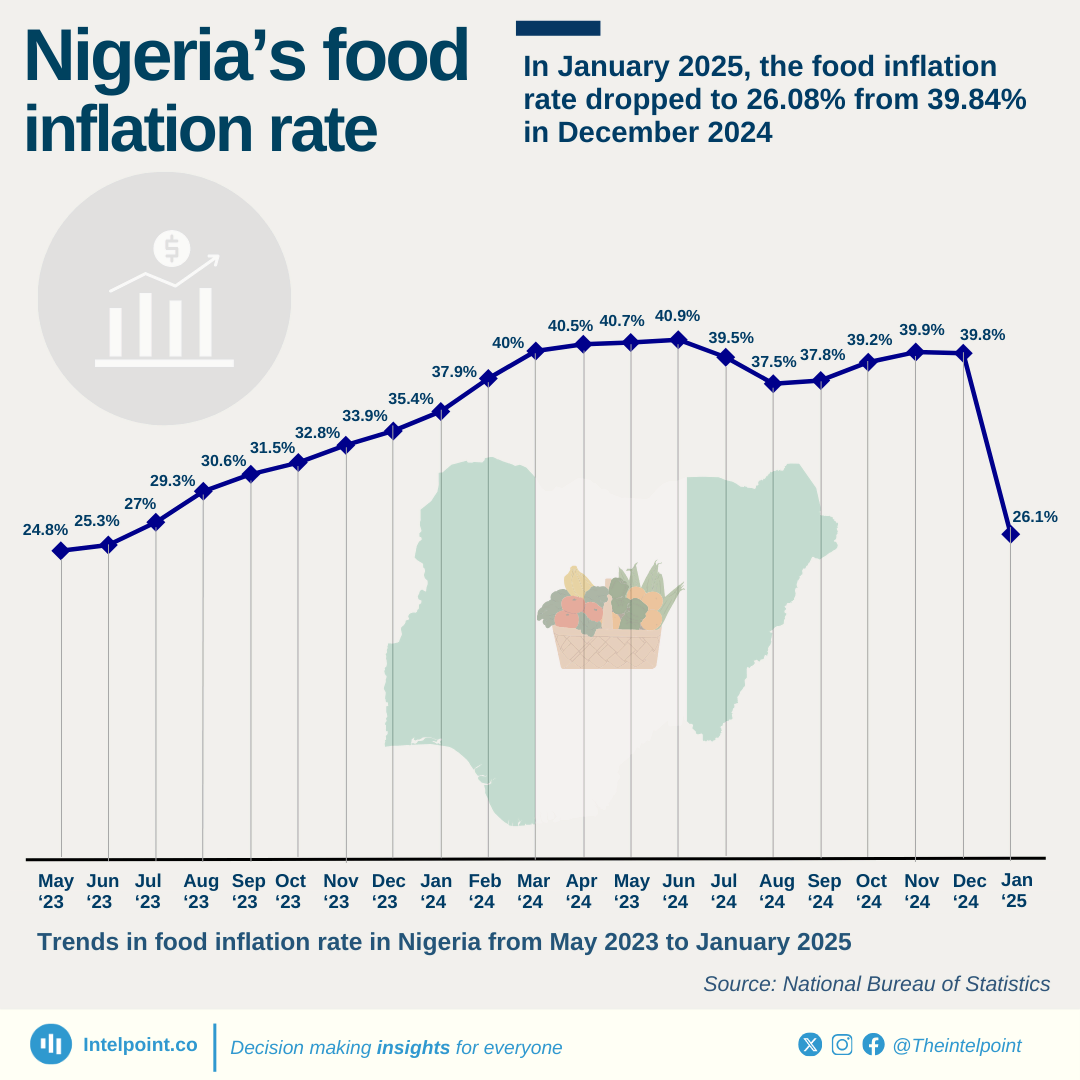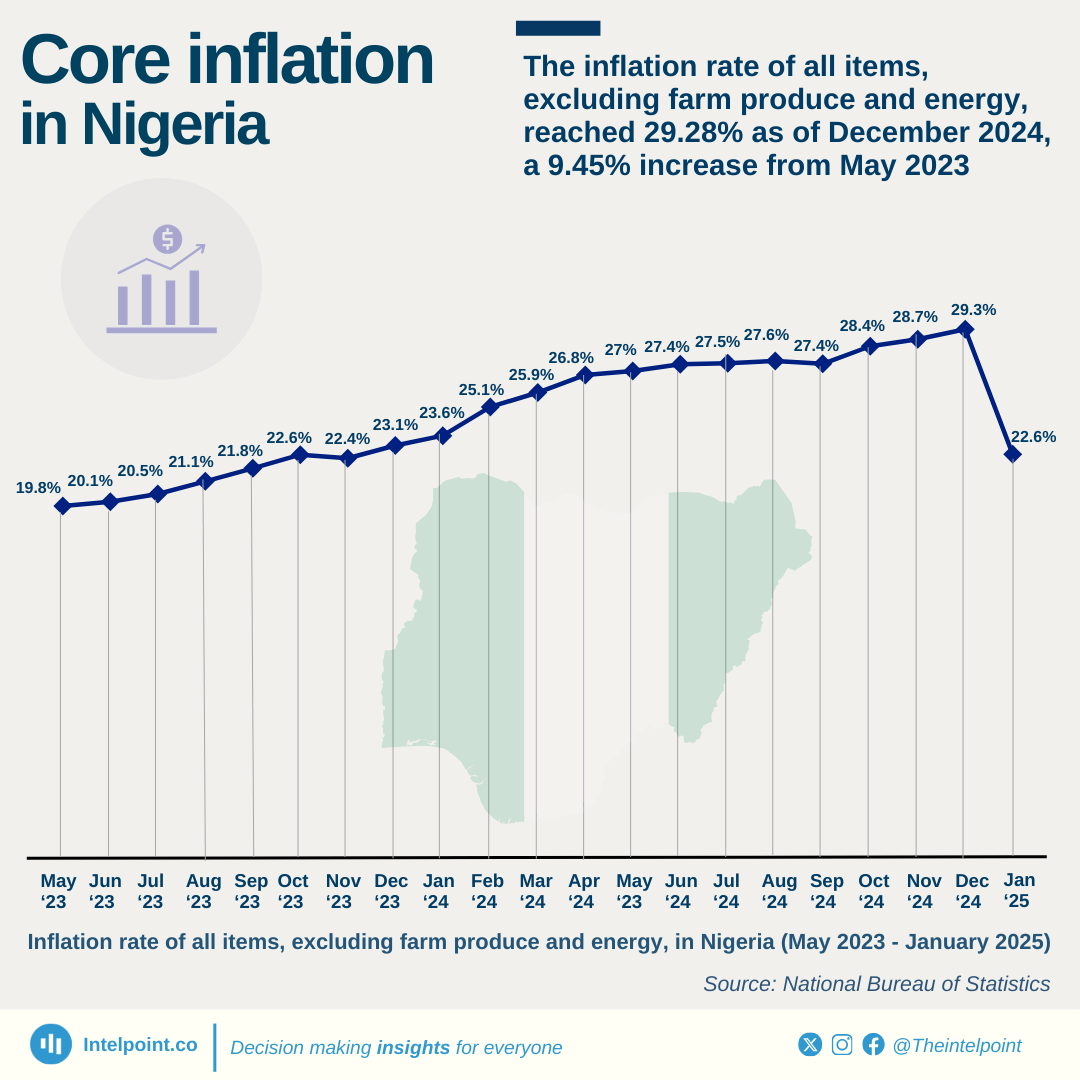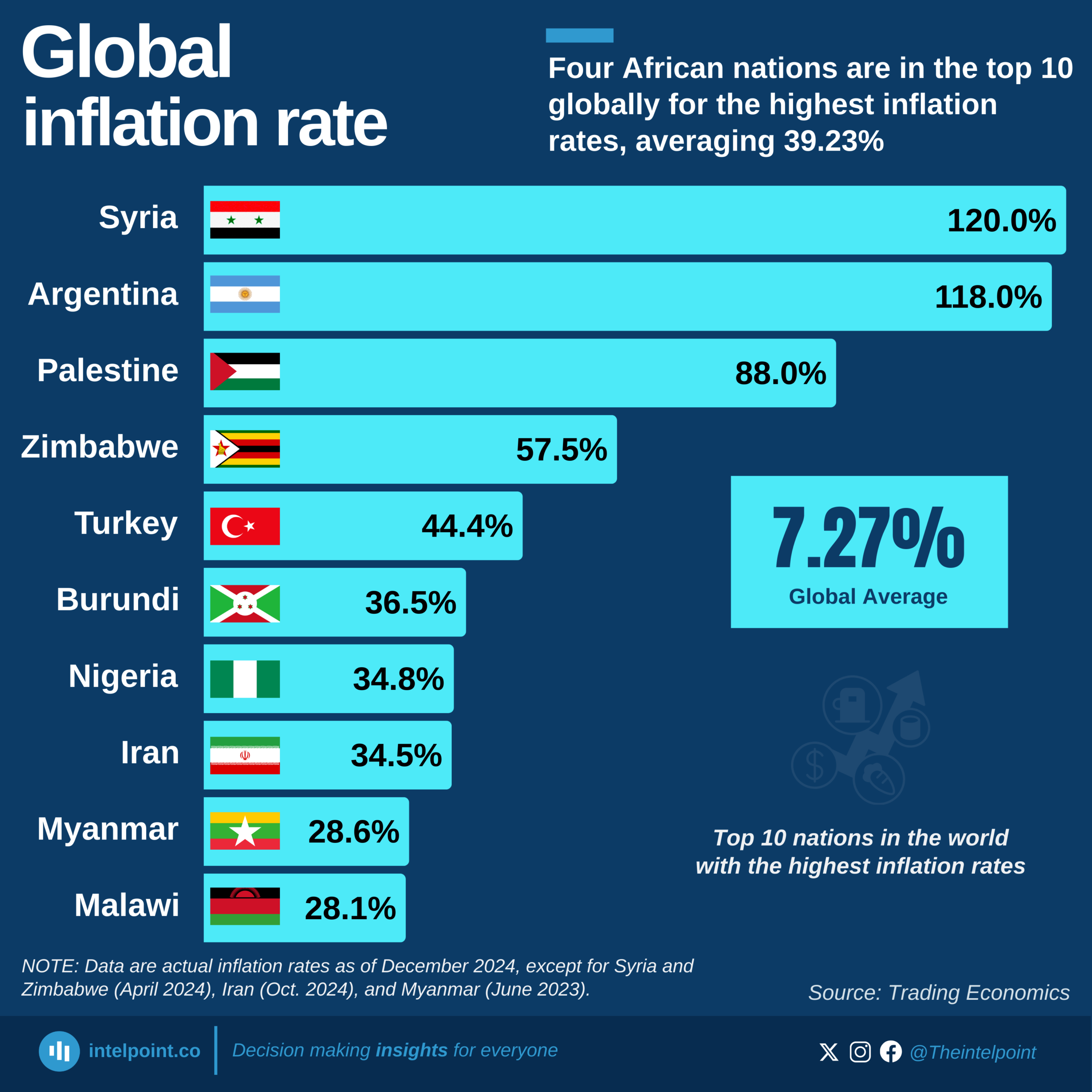Key takeaways:
Following the removal of subsidies and the devaluation of the naira in May 2023, the inflation rate has consistently shown an upward trend, climbing from 22.41% in May 2023 to 34.80% by December 2024.
The inflation rate for May 2024 represented an increase of 11.54% points relative to May 2023. By December 2024, the inflation rate reached 34.80%, a slight rise from 34.60% in November 2024. This figure was 12.38% points greater than May 2023 and 5.87% points higher than December 2023.
This increase was primarily attributed to heightened demand during the festive season in December, as the National Bureau of Statistics reported, with food and non-alcoholic beverages playing a significant role in driving price increases.
The inflation rate as of January 2025 dropped to 24.5% from 34.8% in December 2024. This significant drop is attributed to the rebasing of the Consumer Price Index from 2009 to 2024 in January 2025.
